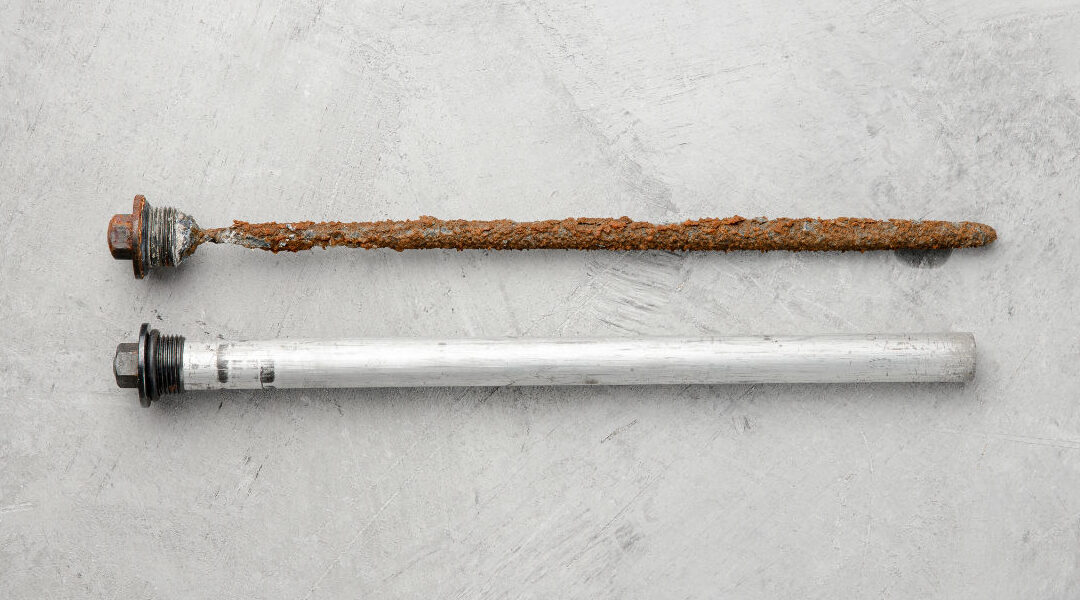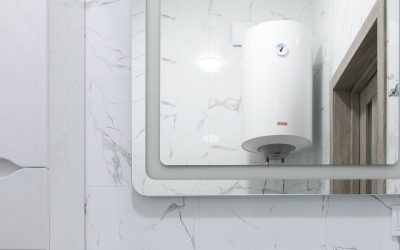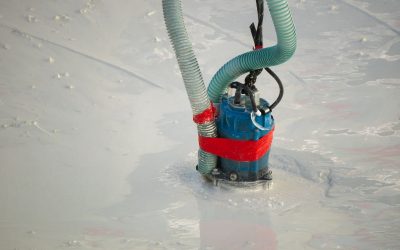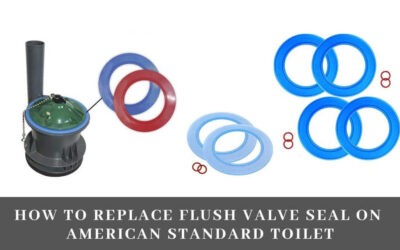Is your water heater acting up? Do you know how to tell if anode rod is bad? Checking the anode rod is important because it can wear out over time and need to be replaced.
If you’re not sure whether your anode rod needs to be replaced, there are some things you can look out for. For instance, if your anode rod looks corroded or has any cracks or damage, it’s likely time to replace it.
In this blog post, we’ll go over the symptoms of a bad anode rod and how to tell if it’s time for a replacement.
So, if you’re experiencing any of these problems with your water heater, it might be time to consider a new anode rod.
Do you have an anode rod? The answer depends on if your water heater has a storage tank or not. Tankless water heaters do not have anode rods, but all storage tank water heaters do.
How to tell if anode rod is bad
1. A heavily corroded anode rod
You can usually tell if an anode rod is bad by looking at it. If the rod is heavily corroded, it may be time to replace it.
The anode rod is exposed to air and water, which causes it to corrode over time. The corrosion process is accelerated by high temperatures, making the anode rod in a water heater particularly susceptible to corrosion.
Several factors can contribute to anode rod corrosion, including:
- Exposure to oxygen: When the anode rod is exposed to oxygen, it begins to corrode. This can be due to a crack in the tank or simply from the water level dropping too low.
- High temperatures: The higher the temperature of the water, the greater the rate of corrosion. This is why it’s especially important to maintain your water heater and keep an eye on the anode rod.
2. Awful rotten egg smell in the water
If you’ve ever smelled a rotten egg, you know how terrible it can be. If your water smells like sulfur in one faucet (the hot one), unfortunately, this is often the sign of a problem with your water heater’s anode rod.
The anode rod is responsible for protecting the water heater from corrosion.
It does this by sacrificial oxidation, which means that it corrodes instead of the metal parts of the water heater. Over time, the anode rod will eventually disintegrate and need to be replaced.
If your anode rod is disintegrating, it can cause a variety of problems. One of which is a horrible rotten egg smell in your water heater.
This happens because the rod decomposes into sulfates which mix with the water and create this awful smelling hydrogen sulfide gas.
3. Reddish-brown water discoloration
Discolored water in the water heater is usually due to the anode rod.
The anode rod is a metal rod that is placed in the water heater to help prevent corrosion.
Over time, the anode rod can become corroded and this can cause the water to become discolored due to rust.
If you notice a reddish-brown in your water from the water heater, you may want to check the anode rod and see if it needs to be replaced.
4. Water smells rusty
Rusty-smelling water coming from your water heater is most likely due to corrosion on the anode rod.
If the anode rod becomes corroded or damaged, it can’t do its job properly and will allow rust and other debris to build up in your tank.
When this rusty water eventually makes its way into your home, it will create an unpleasant rusty smell.
5. Strange sounds in the water heater
The main culprit of strange noises such as rumbling and banging in the water heater is sediment buildup.
When the anode rod corrodes, tiny pieces of metal may flake off and cause sediment build-up in the water. Flushing the water heater may help, but the anode could still need replacing.
The strange noises you hear in the tank could be due to the hot water forcing its way through the accumulated sediment. It could also be due to the pieces of metal from the corroded anode moving around the tank as the water is heating.
If you’re hearing strange noises coming from your water heater, it’s probably a good idea to replace the anode rod. Just be sure to get the right type of anode rod for your water heater – did you know water heater anode rods can be aluminum or magnesium?
How do you test an anode rod?
There are two ways to test an anode rod: a visual inspection and a digital multimeter test.
Visual inspection test
This should be done at least annually and you will basically be looking for three things: the general condition of the anode rode, signs of corrosion, and absence of serviceable connections.
The general condition includes information like whether the anode is properly installed and mounted, as well as whether there is any visible damage (such as cracking or bends). If your water heater is leaking from the top of the tank that’s usually from the anode rod connection.
Signs of corrosion include bare metal or heavy pitting on the anode itself.
Digital voltmeter test
This is done mostly to test for corrosion on the anode rod.
You can do this using a voltmeter to measure the voltage between the two electrodes. If there is a significant difference in the voltage, then the anode rod is likely corroded.
How long does an anode rod last in order to be replaced?
How long an anode rod should last and how often to replace it depends on the water quality, but as a general rule, an anode rod should be replaced every 3-5 years.
If the water is particularly hard or has a high mineral content, it might need to be replaced more frequently.
Also, if the water quality changes and your system starts using more chlorine to disinfect the water, it can cause the anode rod to wear out more quickly.
So if you start seeing higher chlorine levels in your water or if your water tastes different than it used to, it’s probably time for a new anode rod.
What happens when an anode rod goes bad and you don’t change it?
When an anode rod goes bad, it means that it is no longer effectively protecting the metal of your water heater from corrosion.
This can cause all sorts of problems, from simply reducing the efficiency of your heater to major leaks and other damage.
If you don’t change the anode rod when it goes bad, you’re basically just asking for trouble.
What happens when anode rod goes bad and you don’t change it?
When an anode rod goes bad, it means that it is no longer effectively protecting the metal of your water heater from corrosion.
This can cause all sorts of problems, from simply reducing the efficiency of your heater to major leaks and other damage.
If you don’t change the anode rod when it goes bad, you’re basically just asking for trouble.
Can anode rod be cleaned and reused?
Yes, anode rods can be cleaned and reused but only if it’s not damaged or corroded.
It’s possible to clean off build-up on anode rod but make sure that they are thoroughly cleaned before reuse. Otherwise, they may not work as effectively the second time around.
Additionally, it’s generally recommended to only reuse anode rods a few times before replacing them altogether. This will help ensure that your water heater continues to operate efficiently and effectively.
How to remove anode rod from water heater
To remove the anode rod from a water heater, it’s usually easiest to unscrew it from the top.
However, some water heaters have an anode rod that is threaded into the bottom of the tank instead.
If this is the case with your water heater, you’ll need to shut off the electricity or gas supply to the unit before you can remove the anode rod.
Once you’ve turned off the power or gas, locate the hex nut on top of the tank that holds the anode rod in place. Use a wrench to loosen and remove the hex nut. Once it’s loose, you should be able to unscrew and pull out the anode.
Conclusion
Are you wondering how to tell if anode rod is bad and needs to be replaced? If your anode rod looks corroded or has any cracks or damage, it’s likely time to replace it.
Your water heater may not work as effectively due to a damaged or corroded anode rod. Also, your water might have an awful rotten egg smell, a reddish-brown color, or a bad smell.
If you’re not sure whether your anode rod is bad, you can always ask a plumber or get a free quote from a water heater specialist. They’ll be able to take a look at your anode rod and determine whether it needs to be replaced, or take care of any other water heater issues.







